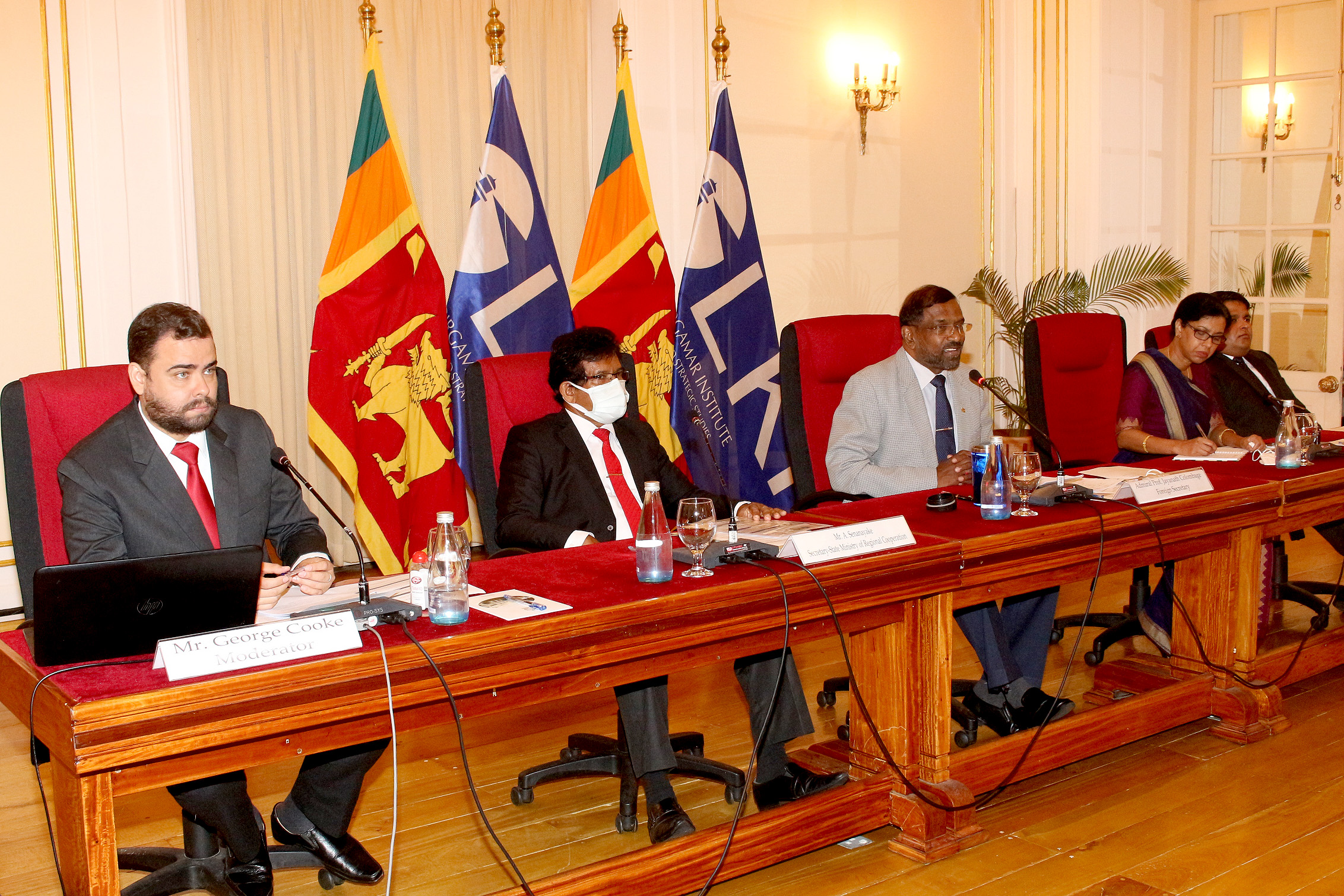Takeaways – Ambassador Forum: South Asia’s Approach to the ‘New Normal’ in the Post-COVID-19 World
October 29, 2021 Reading Time: 3 minutes

Reading Time: 3 min read
Three key takeaways from the Ambassador Forum webinar ‘South Asia’s Approach to the New Normal in the Post COVID-19 World’:
- To optimise the new normal and stay ahead of the path in the post-COVID-19 world, South Asia must collectively strategise by sharing tools and new knowledge systems to build a cohesive neighbourhood promoting economic growth and development.
- Technological innovations will play an increasingly significant role in South Asia’s population; not merely for the manufacturing of vaccines and essential medicines, but will be an essential component of the region’s economic revival efforts.
- South Asia must focus on overlapping interests in resources and requirements for the long term, by investing in sustainable infrastructure, mechanisms and supplies needed to achieve accessibility to goods and services through trade, investment and tourism within the region.
Introduction
- The Lakshman Kadirgamar Institute of International Relations and Strategic Studies (LKI) launched the Ambassador Forum discussion series on Thursday, 15th July 2021. The inaugural event, which was held virtually, focused on ‘South Asia’s Approach to the New Normal in the Post Covid-19 World’.
- The panellists were: Admiral Professor Jayanath Colombage, Foreign Secretary of Sri Lanka; H.E. Mr Mohammed Ashraf Haidari, Ambassador of the Islamic Republic of Afghanistan; H.E. Mr. Tareq Ariful Islam, High Commissioner of the People’s Republic of Bangladesh; H.E. Mr. Gopal Baglay, High Commissioner of the Republic of India; H.E. Mr. Omar Abdul Razzak, High Commissioner of the Republic of Maldives; and Mr. Tanvir Ahmad, Acting High Commissioner of the Islamic Republic of Pakistan.
- The discussion was moderated by Mr. George Cooke, Diplomatic Historian and Initiator of Awarelogue Initiative.
Takeaways from the discussion:
The ‘New Normal’ and South Asia
- The new normal is not static and is subject to continuous evolution as public health experts uncover new information about the novel virus and the emergence of new variants.
- The new normal has brought attention to the primacy of public expenditure on health as a key determinant of the quality of outcomes of the regions healthcare systems.
- The pandemic is transforming the pre-COVID level business models and has affected traits such as consumption and spending patterns and social and behavioural norms. These changes are here to stay in the new normal, posing significant challenges and opportunities to South Asia becoming a global investment hub in the post-COVID-19 world.
- The new normal could help South Asia reach a consensus on many socio-economic facing the region. Therefore, adapting will require leadership, vision and new strategies to implement deep structural reforms.
Building Regional Health Resilience
- Universal health coverage against any health emergency should be the core of the new normal. Regional and evidence-based pandemic management merits greater attention across South Asia, including the possibility of a regional pandemic preparedness and response strategy.
- Universal and affordable access to COVID-19 vaccines is essential to combat the virus and revive global trade, investment and tourism.
- Provision of grants and concessional lending to developing countries is necessary to secure South Asia’s share of vaccines as a public good.
- Many economies in South Asia revolve around the tourism industry and until vaccine access for everyone can be guaranteed countries should look to continuously improve testing mechanisms at border controls.
Investing in New Technology
- The new normal has increased the facilitation of trade and commerce through digital platforms and automation. These trends suggest that the re-skilling of the workforce and other reforms necessary to enhance the productivity and optimisation of the digital economy will be an important task for governments.
- South Asian governments can improve the delivery of health and educational services across the region by scaling up the use of digital technologies for everyday activities. This requires more effective interventions to address disparities in affordability, and accessibility to reliable high-speed internet connectivity and other related services.
- Countries must bridge the legal and regulatory gaps in order to expand the digitalisation of economic activities and services.
Strategies to Boost and Sustain Economic Recovery
- Create more economic opportunities through the development of more enhanced connectivity in transport, financial services, intra-regional trade and investments.
- As pandemic related trade barriers continue to affect global supply chains, South Asian countries should consider forming a safe and secure regional logistics hub.
- As future waves and variants of the virus emerge, governments should implement smart lockdowns as a means to simultaneously safeguard public health and minimise socio-economic costs associated with regional/city-wide lockdowns.
The Importance of Regional Solidarity
- Greater cooperation is necessary to enhance regional stability and prosperity to create better regional responses to our most pressing challenges today such as; pandemics, climate change, and other security threats.
- South Asian countries need to increase their engagement with regional organisations such as SAARC and the Shanghai Cooperation Organization (SCO) to strengthen diplomatic and economic ties.
- A collective South Asian voice at multilateral forums such as the U.N, asking for global attention to address common challenges facing South Asia, is stronger than individual voices from countries within the region.
